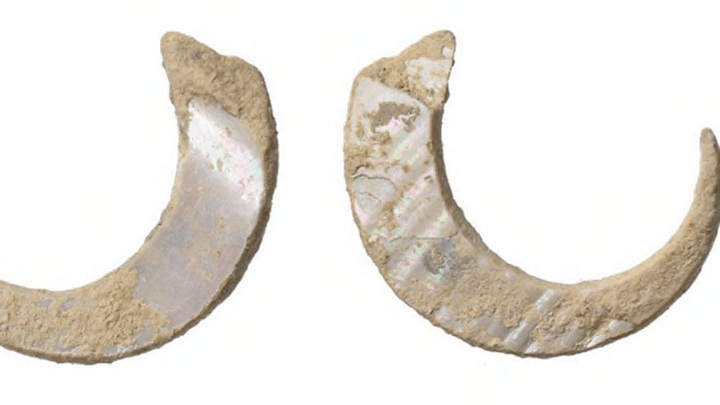Archaeologists have discovered the world’s oldest known fishhooks—23,000-year-old implements carved from sea snail shells—inside a cave on Japan’s Okinawa Island, Science reports. The findings, recently published in the journal PNAS, provide new insights into both Okinawa Island’s history of human habitation and the early use of maritime technology in the Asian Pacific. They suggest such tool use began in the region far earlier than experts had believed.
Humans moved to Okinawa Island and its surrounding sister islands around 50,000 years ago, but scientists used to think that the region's resources were too scant to support early people for prolonged periods of time. According to CNN, this notion was challenged by a group of Japanese archaeologists, who have been excavating Sakitari Cave, a limestone cave that sits a little over a mile inland from Okinawa Island’s southern coast, since 2009.
Long ago, fishermen hung out in the cavern to catch crabs and freshwater snails migrating downstream. Archaeologists discovered the fishhooks—one finished, the other unfinished—along with other artifacts including beads, tools, human remains, and the burnt residue of foods including frogs, birds, and eels. Thanks to these findings, the researchers propose that humans may have continuously lived on Okinawa Island for 35,000 years now.
These ancient inhabitants were also sophisticated enough to know that certain foods taste better seasonally, The Guardian points out. The burnt crab remains suggest that the crustaceans were caught during their fall migratory period, when they’re largest and tastiest.
Perhaps most importantly, the fishhooks help reshape the timeline of maritime technology. Experts knew Paleolithic people had created and adapted tools to exploit marine resources in Australia and Indonesia, but until now, they had no evidence that they did so in other geographical regions.
[h/t Science]
Know of something you think we should cover? Email us at tips@mentalfloss.com.
